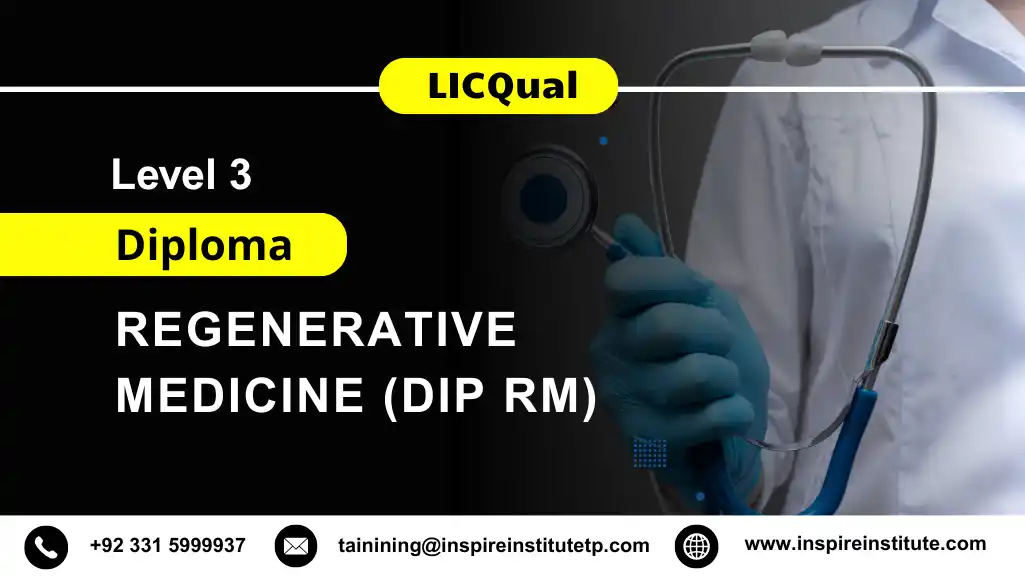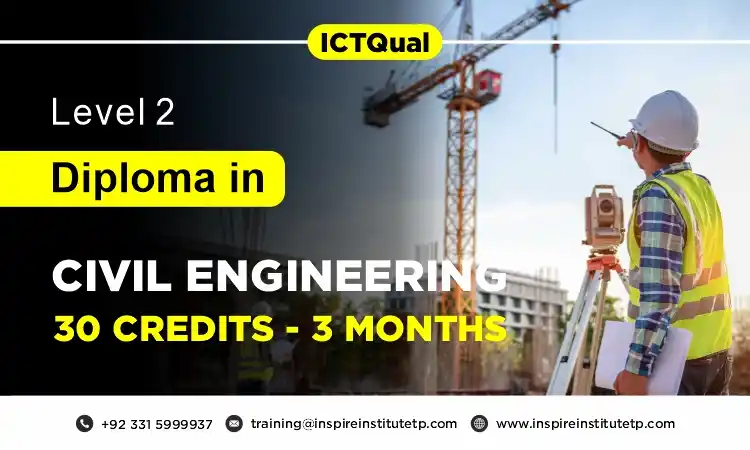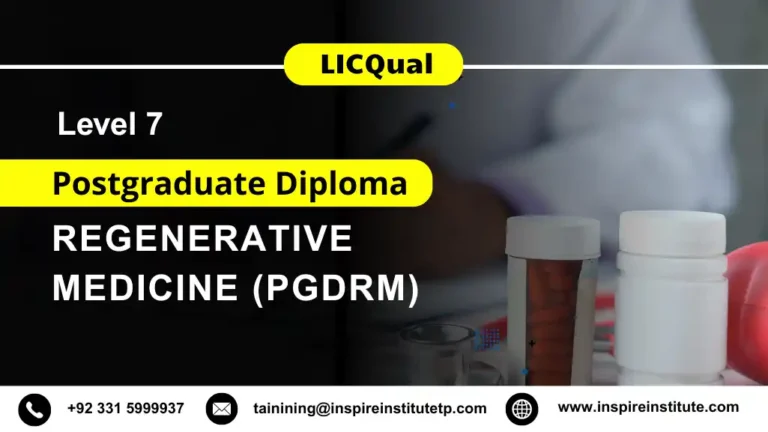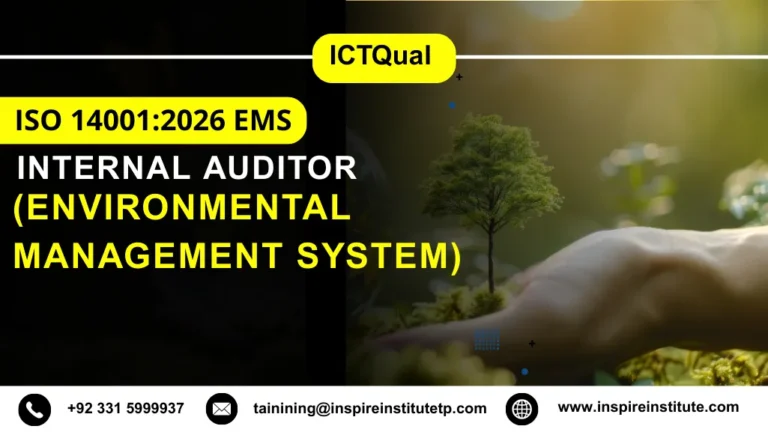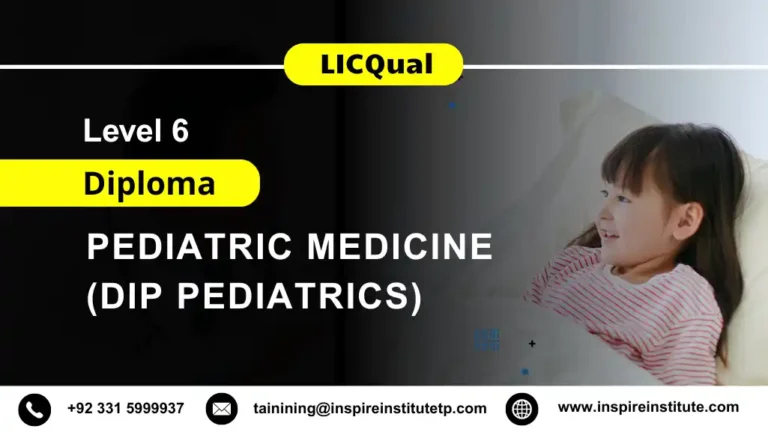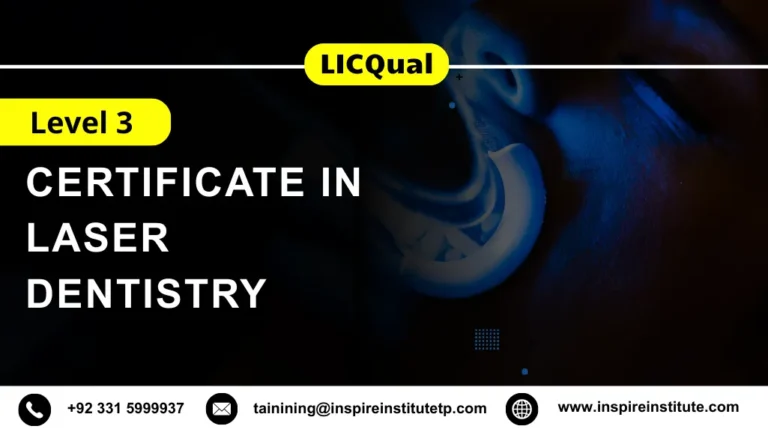LICQual Level 3 Diploma in Regenerative Medicine (Dip RM)
The LICQual Level 3 Diploma in Regenerative Medicine (Dip RM) places you at this vanguard, equipping you with the knowledge and skills to harness the body’s own repair systems. This qualification is not merely academic — it is deeply relevant to clinicians, scientists, and allied health professionals seeking to contribute to next-generation therapies and tissue engineering solutions.
The primary purpose of the Dip RM is to provide a rigorous, yet accessible, pathway into the field of regenerative medicine. This course spans foundational theory — stem cell biology, tissue scaffolding, biomaterials — through to applied modalities such as cell-based therapies, gene editing, and scaffold fabrication. You will learn both the “why” and the “how” behind regenerative interventions, guided by industry standards and evidence-based practices. The scope covers cellular regeneration techniques, translational research, and clinical implementation strategies, ensuring you graduate with a well-rounded, actionable competence.
Throughout the Dip RM, you will develop critical skills in laboratory methods, experimental design, data interpretation, and quality control in cell and tissue engineering. You’ll gain deep conceptual knowledge in regenerative processes — from signal transduction to immune modulation — and be able to assess emerging technologies such as 3D bioprinting or exosome therapies. Beyond that, you’ll learn to translate these techniques into clinical or research settings, applying them in regenerative therapies, wound healing, or organ repair contexts.
Practical application lies at the heart of this diploma. Hands-on laboratory modules, case studies, and project work will allow you to put theory into practice — from isolating stem cells to designing scaffolds and evaluating their integration. You’ll emerge capable of planning and executing small-scale regenerative experiments, validating biomaterials, and interpreting results to guide further development in regenerative medicine.
This qualification is ideal if you aim to work in biomedical research, cell therapy companies, academic labs, or clinics offering regenerative treatments. On completion, your credentials will demonstrate that you possess not just theoretical knowledge but practical, industry-relevant capabilities in regenerative medicine. The LICQual Level 3 Diploma in Regenerative Medicine (Dip RM) becomes a powerful credential on your CV, signaling to employers and collaborators that you are ready to contribute in this evolving and high-impact field.
Why Choose this Qualification
The LICQual Level 3 Diploma in Regenerative Medicine (Dip RM) is a prestigious qualification tailored for individuals aiming to build expertise in the fast-evolving field of regenerative medicine. This course provides an in-depth understanding of cellular regeneration, stem cell science, tissue engineering, and biomaterials, empowering learners to engage with innovative healthcare technologies. Designed with both academic rigor and industry relevance, the qualification develops the scientific, technical, and analytical skills needed to advance in biomedical and clinical environments.
Key Reasons to Choose this Qualification
1. Comprehensive Understanding of Regenerative Medicine
• Gain a detailed understanding of stem cell biology, molecular mechanisms, and tissue regeneration processes.
• Learn about the development and clinical applications of regenerative therapies across multiple health disciplines.
• Explore the use of biomaterials and scaffolds in tissue reconstruction and organ repair.
• Understand ethical, regulatory, and quality standards governing regenerative medicine research.
• Build a scientific foundation that supports progression to advanced biomedical studies.
2. Industry-Relevant Curriculum
• Study modules developed in alignment with current industry needs and professional standards.
• Gain exposure to the latest advancements, including 3D bioprinting and nanotechnology in regenerative medicine.
• Learn how biotechnology integrates with clinical innovations to improve healthcare outcomes.
• Develop practical insights through case-based assessments reflecting real-world scenarios.
• Acquire skills benchmarked against measurable performance standards recognized globally.
3. Hands-On Practical Training
• Participate in laboratory-based simulations focused on stem cell culture and biomaterial testing.
• Learn essential laboratory skills such as aseptic technique, microscopy, and experimental documentation.
• Apply scientific principles to practical assignments that reinforce understanding and precision.
• Develop critical thinking skills through observation, analysis, and evaluation of experimental outcomes.
• Gain confidence in handling biological materials and applying safety protocols in laboratory environments.
4. Career Advancement Opportunities
• Prepare for professional roles such as biomedical researcher, lab assistant, or regenerative medicine technician.
• Enhance your employability in healthcare, biotechnology, and clinical research sectors.
• Use this qualification as a pathway to higher education in biomedical or life sciences disciplines.
• Strengthen your professional profile with an internationally accredited credential.
• Demonstrate capability in both theoretical knowledge and technical expertise to potential employers.
5. Focus on Innovation and Research Skills
• Develop research-oriented thinking and learn to evaluate scientific data critically.
• Understand how innovation drives advancements in regenerative therapies and medical technologies.
• Learn to design small-scale research projects and analyze outcomes using scientific methods.
• Gain familiarity with emerging trends such as genetic engineering and exosome-based therapies.
• Build competence in translating theoretical knowledge into applied biomedical research.
6. International Recognition and Accreditation
• Earn a globally recognized qualification accredited by LICQual, ensuring academic credibility.
• Benefit from standards aligned with international frameworks in life sciences education.
• Open doors to global opportunities across research institutions and healthcare organizations.
• Be confident that your learning outcomes meet international quality assurance benchmarks.
• Gain a qualification respected for its relevance, rigor, and global portability.
7. Flexible and Accessible Learning Format
• Study through assignment-based modules designed for flexible, self-paced learning.
• Access comprehensive learning resources and tutor guidance anytime and anywhere.
• Balance academic growth with professional and personal commitments effectively.
• Develop time management and independent learning skills valued in professional environments.
• Experience a structured yet adaptable learning journey supported by expert educators.
8. Real-World Application and Employability
• Apply your learning to real-world clinical, research, and laboratory scenarios.
• Build a professional portfolio showcasing your understanding of regenerative medicine principles.
• Engage with projects that emphasize critical thinking and solution-oriented learning.
• Develop transferable skills such as data analysis, reporting, and communication.
• Prepare to contribute effectively to innovative healthcare and biomedical initiatives.
Choosing the LICQual Level 3 Diploma in Regenerative Medicine (Dip RM) means investing in a qualification that combines scientific depth, practical application, and international recognition. It empowers learners with measurable knowledge, technical precision, and analytical expertise essential for success in the evolving biomedical sector. This course serves as a solid foundation for those aspiring to advance their careers in regenerative healthcare, biotechnology, or academic research while contributing meaningfully to the future of medicine.y.
Course Overview
LICQual UK Awarding Body
Average Completion Time:
4-12 Months
Study Units: 6 Units
Evidence & Assignment Based
Mandatory Units
Who Should Take This Course
The LICQual Level 3 Diploma in Regenerative Medicine (Dip RM) is designed for individuals who aspire to gain a deep understanding of one of the most advanced and rapidly evolving fields in modern medical science. This qualification is ideal for learners who wish to develop their knowledge and practical skills in regenerative medicine, tissue engineering, and biomedical innovation. Whether you are a student beginning your scientific journey, a healthcare professional seeking to expand your expertise, or a researcher aiming to enhance your technical competence, this course provides the foundation to excel in a range of professional and academic pathways.
This course is suitable for
Aspiring Biomedical and Life Science Students
• Ideal for students who want to build a strong foundation in biomedical sciences and medical research.
• Learn the essential concepts of cell biology, molecular science, and tissue regeneration.
• Gain exposure to laboratory techniques and scientific analysis relevant to biomedical careers.
• Understand how regenerative medicine integrates with biotechnology and healthcare.
• Develop the academic skills needed for progression to higher-level qualifications in medical sciences.
Healthcare and Clinical Professionals
• Suitable for doctors, nurses, and allied health practitioners seeking to understand regenerative therapies.
• Learn about the clinical applications of stem cell and tissue engineering techniques.
• Enhance your ability to assess new regenerative treatments within ethical and scientific frameworks.
• Gain insights into how regenerative approaches are transforming patient care and recovery.
• Strengthen your ability to integrate innovative practices within healthcare environments.
Laboratory Technicians and Research Assistants
• Perfect for individuals working in medical or research laboratories seeking to advance their technical expertise.
• Gain proficiency in laboratory skills such as cell culture, biomaterial testing, and quality control.
• Learn how to design, execute, and analyze small-scale regenerative research projects.
• Improve your understanding of lab safety, documentation, and data integrity standards.
• Enhance your career potential within biotechnology, pharmaceutical, or academic research settings.
Biotechnology and Pharmaceutical Professionals
• Designed for professionals involved in biotechnology, drug discovery, or tissue engineering development.
• Understand how regenerative medicine aligns with biotechnological innovations and clinical research.
• Learn to evaluate and apply bioprocessing methods and biomaterial technologies.
• Strengthen your ability to contribute to product development and regulatory compliance.
• Build industry-relevant knowledge that supports innovation in biomedical manufacturing sectors.
Academic and Research Scholars
• Ideal for postgraduate students and academic researchers interested in emerging biomedical fields.
• Develop the analytical and critical thinking skills required for independent scientific inquiry.
• Learn to interpret and evaluate scientific literature related to regenerative and molecular medicine.
• Acquire the ability to contribute to academic discussions and peer-reviewed research.
• Build competencies that support future PhD or advanced-level research pursuits.
Career Changers and Lifelong Learners
• Suitable for individuals looking to transition into the field of biomedical science or regenerative research.
• Learn the fundamental principles and practices required to start a new career in healthcare innovation.
• Gain confidence through structured, assignment-based assessments that validate learning outcomes.
• Acquire industry-recognized certification that enhances employability and credibility.
• Build a pathway toward continuous professional development in life sciences.
Entrepreneurs and Innovators in Health Technology
• Perfect for entrepreneurs seeking to understand the science behind regenerative healthcare innovations.
• Learn the technical and commercial potential of stem cell and tissue engineering products.
• Understand regulatory, ethical, and market challenges in regenerative medicine startups.
• Gain insights into translational research and product development pipelines.
• Build the scientific literacy required to collaborate effectively with researchers and clinicians.
International Students and Global Professionals
• Ideal for learners from around the world seeking a UK-recognized qualification in regenerative medicine.
• Study within a globally relevant framework that aligns with international healthcare standards.
• Gain exposure to cross-cultural perspectives in scientific research and medical innovation.
• Strengthen your academic portfolio for global career or higher education opportunities.
• Access flexible, assignment-based learning suited for distance and international learners.
The LICQual Level 3 Diploma in Regenerative Medicine (Dip RM) is a transformative qualification suited for a wide range of learners and professionals who aim to engage with the forefront of medical innovation. It empowers participants with measurable knowledge, hands-on skills, and practical understanding that can be applied across various disciplines within biomedical science. Whether your goal is career progression, academic advancement, or contribution to scientific discovery, this diploma provides the essential foundation for success in the global regenerative medicine field.ens their career prospects, enhances patient care, and equips them for advanced roles in cardiothoracic healthcare.
Course Benefits
The LICQual Level 3 Diploma in Regenerative Medicine (Dip RM) offers a comprehensive learning experience for individuals seeking to build a solid foundation in regenerative healthcare, tissue engineering, and cellular therapy. This UK-accredited qualification bridges theoretical science with real-world biomedical applications, equipping learners to understand, analyze, and apply regenerative principles in clinical and research settings. Designed as an assignment-based programme, it provides flexibility, accessibility, and academic depth—ideal for healthcare practitioners, biomedical students, and professionals aspiring to excel in regenerative and molecular medicine.
Key Benefits of the Course:
- Specialist Knowledge:
Gain an in-depth understanding of stem cell biology, tissue regeneration, and molecular mechanisms underlying cellular repair and renewal. Learners explore the biological foundations of regenerative therapies, including gene editing, biomaterials, and 3D bioprinting. The course also addresses the ethical and regulatory aspects of regenerative healthcare, ensuring graduates are equipped to make informed, responsible decisions in clinical and research environments. - Practical Application:
Develop essential laboratory and clinical skills relevant to regenerative medicine. Learners gain practical experience in cell culture, tissue modeling, and experimental analysis. Through case studies and project-based assessments, participants learn to apply theoretical concepts in real-world medical and research scenarios. The qualification ensures that graduates can perform laboratory techniques confidently and interpret data effectively to contribute to innovative healthcare advancements. - Recognised Qualification:
Earn a UK-recognised diploma that validates your expertise in regenerative medicine and biotechnology. This internationally accredited qualification enhances professional credibility and global career opportunities. Graduates can pursue employment in healthcare, pharmaceutical industries, academic research institutions, and biomedical laboratories worldwide, aligning with global standards in medical and life sciences education. - Flexible Learning Pathway:
The assignment-based format allows learners to study at their own pace, accommodating work and personal commitments. This flexible structure makes it ideal for healthcare practitioners, laboratory technicians, and career changers seeking to develop specialized expertise without disrupting their schedules. Learners benefit from guided assessments and structured modules that promote steady academic and professional growth. - Evidence-Based Training:
The course integrates the latest research and scientific developments in regenerative medicine, cellular biology, and tissue engineering. Learners engage with evidence-based methodologies that reflect modern scientific practices. This ensures that graduates are proficient in applying current technologies and clinical approaches that meet international healthcare and research standards. - Career Development:
Completing this diploma opens diverse professional opportunities in medical research, biotechnology, and healthcare sectors. Graduates can pursue roles such as biomedical research assistant, cell therapy technician, regenerative medicine specialist, or continue to higher education in biomedical or clinical sciences. The course provides the skills and credentials needed for career progression in cutting-edge medical fields. - Enhanced Healthcare and Research Contribution:
Learners develop the ability to contribute meaningfully to patient-centered and laboratory-based advancements. By understanding cellular mechanisms and therapeutic innovations, graduates can support the development of new treatments for tissue damage, chronic illnesses, and degenerative diseases. The course prepares learners to play a vital role in advancing regenerative healthcare practices globally. - Professional Growth:
This diploma enhances communication, analytical, and critical thinking skills essential for success in biomedical environments. Learners cultivate professionalism, ethical awareness, and scientific reasoning, empowering them to function effectively in interdisciplinary healthcare and research teams. The programme nurtures confident, competent, and innovative practitioners ready to lead in the field of regenerative medicine.
The LICQual Level 3 Diploma in Regenerative Medicine (Dip RM) empowers learners with the scientific knowledge, technical skills, and professional competence needed to excel in the dynamic world of regenerative healthcare. Combining academic rigor with practical application, this UK-recognised qualification prepares learners to contribute to groundbreaking medical innovations, setting a strong foundation for a rewarding and future-focused career in regenerative medicine.piring practitioners to improve patient outcomes, advance their careers, and contribute to global cardiac and thoracic health initiatives.
Eligibility Criteria
The LICQual Level 3 Diploma in Regenerative Medicine (Dip RM) is a UK-accredited qualification designed for healthcare professionals, laboratory technicians, biomedical researchers, and individuals interested in regenerative therapies and cellular medicine. This assignment-based programme provides an in-depth understanding of stem cell biology, tissue engineering, gene therapy, and cellular regeneration. By blending scientific theory with evidence-based clinical applications, the course equips learners with the essential knowledge and technical competence to contribute effectively to research, diagnostics, and regenerative treatment development. Learners who meet the entry requirements will be well-prepared to apply their expertise in hospitals, biomedical laboratories, stem cell research centres, and regenerative healthcare institutions.
Educational Background:
Applicants should hold a recognised qualification in healthcare, biological sciences, medical technology, or a related discipline. Candidates with Level 2 or Level 3 qualifications in biology, biotechnology, clinical sciences, or health sciences are encouraged to apply. Individuals possessing equivalent international qualifications will also be considered, provided their credentials align with the academic and professional standards of the programme. The diploma is particularly suitable for learners with an educational background in biomedical or life sciences who wish to expand their expertise in regenerative medicine, stem cell therapy, and tissue repair technologies.
Professional Experience:
While prior professional experience in healthcare, medical research, or laboratory science is advantageous, it is not mandatory. A minimum of one year’s experience in healthcare, biotechnology, or a laboratory environment is recommended. Applicants with experience in biomedical research, cell culture, tissue analysis, or clinical support roles will find this qualification particularly beneficial. However, individuals without prior experience but with a strong interest in regenerative medicine are encouraged to apply, as the course provides structured foundational and practical knowledge to build professional competency in this evolving field.
Age Requirement:
Learners must be at least 18 years old at the time of enrolment. This ensures that students possess the maturity, focus, and ethical understanding necessary for studying regenerative medicine, a field involving advanced biological concepts, scientific responsibility, and clinical applications. The course requires analytical thinking, discipline, and a commitment to scientific integrity in alignment with international standards of biomedical education and practice.
Language Proficiency:
Since the LICQual Level 3 Diploma in Regenerative Medicine (Dip RM) is delivered and assessed in English, learners must demonstrate strong proficiency in reading, writing, and communication. Non-native English speakers are required to hold an IELTS score of at least 6.0 or an equivalent qualification. This requirement ensures that learners can effectively interpret complex scientific materials, complete written assignments, and communicate research findings clearly. Proficiency in English also supports accurate scientific documentation, ethical reporting, and effective collaboration within multidisciplinary medical and research teams.
Technical Requirements:
Applicants should have access to a personal computer or laptop with a reliable internet connection to participate fully in the online learning experience. Basic computer literacy is essential, including familiarity with digital research tools, word processing software, and online learning environments. As the programme is assignment-based, learners will be expected to complete and submit coursework electronically and access course resources digitally. The online format provides flexibility, enabling learners to balance academic, professional, and personal commitments efficiently.
Required Documents:
To complete the registration process, applicants must provide a valid passport or national identification card for verification purposes, along with proof of educational qualifications such as certificates or academic transcripts. Documentation of professional or research experience should also be included, where applicable. International applicants may be required to submit certified translations of their academic and professional documents to verify authenticity and eligibility. These requirements ensure that all candidates meet the academic, professional, and ethical standards necessary for successful enrolment in the programme.
The LICQual Level 3 Diploma in Regenerative Medicine (Dip RM) offers a unique opportunity to gain advanced knowledge in one of the most innovative and rapidly expanding areas of modern healthcare. By combining scientific depth, professional development, and flexible learning, this qualification empowers learners to contribute meaningfully to the future of medical science and regenerative healthcare innovation.
The Qualification Process
LICQual Level 3 Diploma in Regenerative Medicine (Dip RM) follows a structured pathway to ensure learners gain comprehensive knowledge, practical skills, and professional competence in community oral healthcare.
Step 1: Self-Assessment
Learners review the entry requirements to confirm eligibility. Candidates with a background in dentistry, oral health, or public health are encouraged to apply.
Step 2: Registration
Complete the registration process by submitting required documents such as proof of qualifications, a valid ID, and payment of enrollment fees.
Step 3: Induction
An induction session is conducted to:
- Verify learner eligibility and documentation.
- Introduce study materials, learning outcomes, and assessment procedures.
Step 4: Learning and Evidence Submission
Learners complete assignments, case studies, and practical exercises demonstrating competence in public health dentistry, community oral health assessment, preventive strategies, and program planning.
Step 5: Feedback and Revision
Assessors review submitted evidence and provide constructive feedback. Learners can revise and resubmit work to meet all required standards.
Step 6: Competence Validation
Final submissions are evaluated to confirm that learners have met all theoretical and practical learning outcomes.
Step 7: Internal Quality Assurance (IQA)
The IQA team reviews the assessment process to ensure accuracy, fairness, and compliance with international standards.
Step 8: External Verification (EQA)
External verifiers validate the authenticity and quality of learner achievements.
Step 9: Certification
Upon successful verification, learners are awarded LICQual Level 3 Diploma in Regenerative Medicine (Dip RM), demonstrating advanced proficiency in community oral healthcare and preparing them for professional growth in dental public health, preventive dentistry, and healthcare policy.

